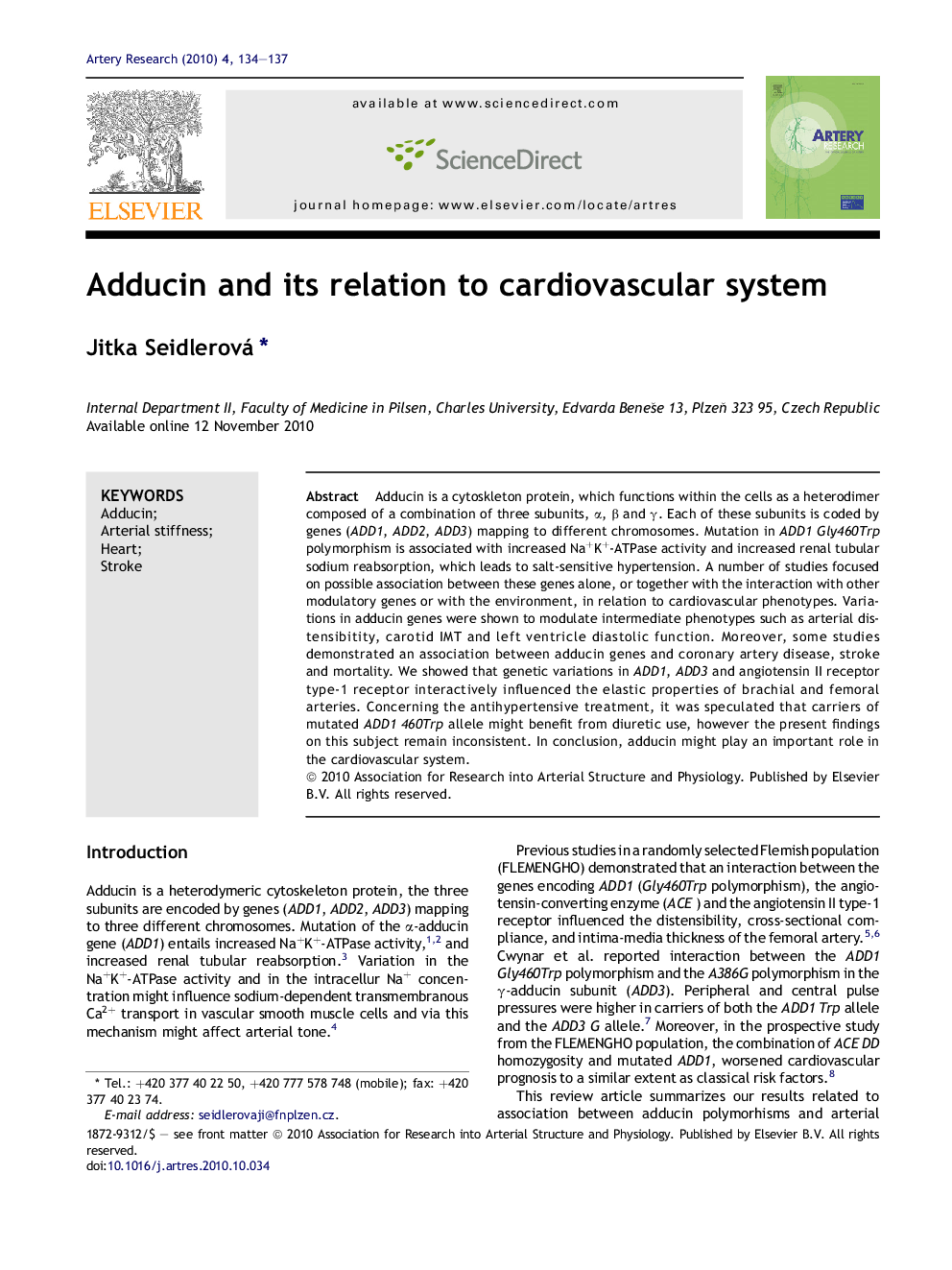| Article ID | Journal | Published Year | Pages | File Type |
|---|---|---|---|---|
| 2892085 | Artery Research | 2010 | 4 Pages |
Adducin is a cytoskleton protein, which functions within the cells as a heterodimer composed of a combination of three subunits, α, β and γ. Each of these subunits is coded by genes (ADD1, ADD2, ADD3) mapping to different chromosomes. Mutation in ADD1 Gly460Trp polymorphism is associated with increased Na+K+-ATPase activity and increased renal tubular sodium reabsorption, which leads to salt-sensitive hypertension. A number of studies focused on possible association between these genes alone, or together with the interaction with other modulatory genes or with the environment, in relation to cardiovascular phenotypes. Variations in adducin genes were shown to modulate intermediate phenotypes such as arterial distensibitity, carotid IMT and left ventricle diastolic function. Moreover, some studies demonstrated an association between adducin genes and coronary artery disease, stroke and mortality. We showed that genetic variations in ADD1, ADD3 and angiotensin II receptor type-1 receptor interactively influenced the elastic properties of brachial and femoral arteries. Concerning the antihypertensive treatment, it was speculated that carriers of mutated ADD1 460Trp allele might benefit from diuretic use, however the present findings on this subject remain inconsistent. In conclusion, adducin might play an important role in the cardiovascular system.
